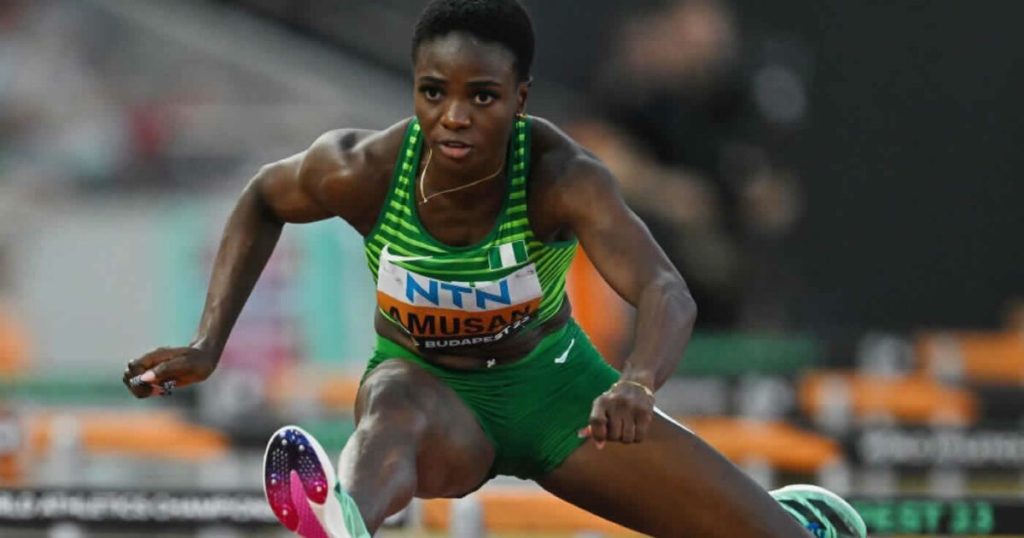The Athletics Federation of Nigeria (AFN) has refuted allegations made by star hurdler Tobi Amusan regarding the quality and distribution of kits provided for the 2025 World Championships in Tokyo. Amusan, a world record holder and Nigeria’s leading medal hope at the championships, had expressed her dissatisfaction on social media, claiming that Nigerian athletes received only meager supplies in “small nylon bags” containing two subpar competition outfits, while athletes from other nations received suitcases filled with apparel. She also complained about the lack of footwear despite officials having collected shoe sizes, forcing her to contemplate using her own training gear. These complaints ignited a social media firestorm, with numerous Nigerians echoing past concerns about the inadequate welfare and preparation of athletes representing the country at international competitions. The timing of Amusan’s outburst coincided with the recent nationality switch of fellow Nigerian athlete Favour Ofili to Turkey, further highlighting the perceived shortcomings in athlete support.
However, AFN President Tonobok Okowa countered Amusan’s claims, asserting that the federation had provided a complete set of kits as per the agreement with Hiracer, the sportswear company sponsoring athletes from 20 countries participating in the Tokyo championships. Okowa clarified that Amusan displayed only one part of the multi-part kit package, with the remaining items scheduled for distribution the following day. He emphasized the uniformity of the distribution process across all participating nations and highlighted that the kits, including spike shoes and covers, were provided free of charge by Hiracer. Okowa acknowledged the absence of travel bags but pointed out that the World Athletics had already provided bags to each athlete, although Hiracer, as the kit sponsor, would typically have supplied them as well. He further revealed that Hiracer had pledged podium bonuses for medalists, with $30,000 for gold, $20,000 for silver, and $10,000 for bronze. The athletes were reportedly briefed about these incentives upon arrival in Tokyo.
Okowa expressed surprise at Amusan’s public complaints, particularly given what he described as preferential treatment she received compared to her teammates. While the rest of the Nigerian contingent traveled in economy class, Amusan was flown business class at her own request, according to Okowa. He maintained that this was the only special request she made. Hiracer, in an official statement, corroborated the AFN’s account, confirming their sponsorship of 20 countries at the World Championships and emphasizing the identical kit distribution system across all sponsored nations. This directly contradicted Amusan’s assertion that Nigeria received inferior treatment.
This incident underscores the strained relationship between Nigerian athletes and the federation, a recurring theme in Nigerian sports. Amusan, a vocal advocate for athlete welfare, has previously expressed concerns about athlete support and resources. Her public criticism, coming just as the World Championships are underway, raises concerns about potential distractions for the Nigerian team. With medals and reputations at stake, the timing of this dispute is particularly sensitive.
The AFN maintains that athletes received a comprehensive kit consistent with other nations sponsored by Hiracer. They acknowledge the absence of travel bags but point to the provision of bags by World Athletics and emphasize the significant financial incentives offered by Hiracer for medalists. Furthermore, the AFN highlights the preferential travel arrangements made for Amusan, suggesting her public complaints are unwarranted given the additional support provided to her.
This latest controversy underscores the ongoing tension between Nigerian athletes and their governing body, raising concerns about the impact on team performance at the World Championships. While the AFN insists on the adequacy of the kits and support provided, Amusan’s public expression of dissatisfaction reflects a deeper issue of trust and communication within Nigerian athletics. The timing of this dispute, coinciding with a major international competition, adds an unwelcome layer of pressure and distraction for the Nigerian team and raises questions about the effectiveness of athlete support systems.














